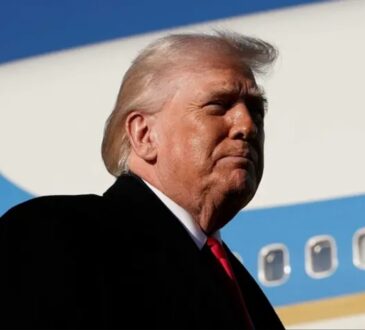
A federal judge has once again blocked one of Donald Trump’s controversial executive orders aimed at punishing prominent law firms, delivering a strong rebuke to the former president’s ongoing efforts to exert power over the legal profession. This marks the fourth consecutive judicial defeat for Trump on this front, reinforcing a growing pattern in which courts have consistently deemed his actions unconstitutional.
District Court Judge Loren AliKhan, a Biden appointee, ruled on June 27 that Trump’s order targeting the Houston-based firm Susman Godfrey violated constitutional protections and must be permanently enjoined. In her sharply worded opinion, AliKhan noted that every court to review the executive orders had found “grave constitutional violations” and stated unequivocally that her court “follows suit.” Her ruling emphasized that the president’s actions overstepped the bounds of executive authority and infringed upon the rights of private entities to legal representation and due process.
The executive orders in question were issued earlier in 2025 and took aim at several of the nation’s most powerful firms—among them Paul Weiss, Perkins Coie, Covington & Burling, and Susman Godfrey. The orders accused these firms of politically motivated litigation, including lawsuits and amicus briefs that challenged Trump’s policies or campaign efforts. Under the directives, federal agencies were instructed to review and potentially cancel the firms’ government contracts, revoke certain attorneys’ security clearances, and deny firm representatives access to federal buildings, including courthouses and administrative offices.
Legal observers and civil liberties groups were quick to condemn the orders, characterizing them as retaliation for the firms’ past legal opposition to Trump and a threat to the independence of the judiciary. In her ruling, Judge AliKhan agreed, asserting that the president had no legal justification for singling out law firms based on the clients they represent or the arguments they make in court. She further noted that access to justice—especially the right to legal counsel—is a core tenet of American democracy and not subject to the whims of the executive branch.
In response to the decision, Susman Godfrey issued a statement calling the ruling “a resounding victory for the rule of law and the right of every American to be represented by legal counsel without fear of retaliation.” The firm added that attempts to undermine legal advocacy through executive overreach set a dangerous precedent and vowed to continue challenging such actions.
The Trump administration, however, remained defiant. White House Deputy Press Secretary Harrison Fields said the president’s actions were within his constitutional powers, particularly in matters involving national security and federal access. “The decision to grant any individual access to this nation’s secrets is a sensitive judgment call entrusted to the President,” Fields said, arguing that decisions related to security clearances fall outside the judiciary’s purview.
While several firms have taken the Trump administration to court and successfully overturned the executive orders, others have opted for a more conciliatory approach. According to reports from Bloomberg and The New York Times, firms like Kirkland & Ellis, Simpson Thacher, Paul Weiss, and Skadden entered into settlement agreements that included billions of dollars in pro bono legal work offered at the discretion of the Trump administration. These agreements have been interpreted by critics as capitulation under political pressure, and some firm leaders have privately expressed discomfort with the terms.
Doug Emhoff, the husband of former Vice President Kamala Harris and a partner at Willkie Farr & Gallagher, reportedly tried to prevent his firm from entering such a deal. However, his efforts were ultimately unsuccessful, and the firm went ahead with a settlement. Emhoff has not publicly commented on the matter, but sources close to the negotiations say he was deeply troubled by the implications for legal independence.
The backlash to these deals has been swift in the corporate world. Major companies including Oracle, Microsoft, McDonald’s, and Morgan Stanley have quietly shifted legal work away from firms seen as cooperating with Trump’s administration. This trend suggests that while some firms may have avoided litigation by complying with the executive orders, they are now paying a reputational and financial price in the private sector.
This latest court ruling, coupled with the broader fallout from Trump’s legal offensive, illustrates the high-stakes nature of the former president’s effort to reshape the legal and political landscape. By attempting to marginalize firms that opposed him in court, Trump has not only drawn sharp condemnation from the legal community but has also invited a wave of constitutional challenges that he is so far consistently losing.
Whether the administration will appeal these decisions remains unclear. However, given the uniformity of the rulings and the strong language used by multiple judges, legal analysts suggest the likelihood of Trump prevailing on appeal is slim. In the meantime, the legal profession continues to grapple with the fallout, weighing the long-term implications for law firm independence, attorney-client privilege, and the politicization of the justice system.




